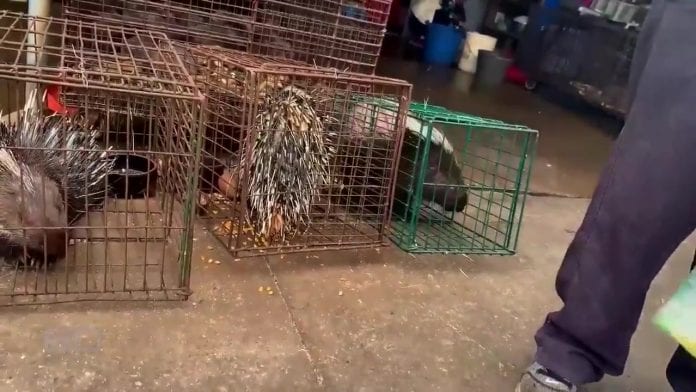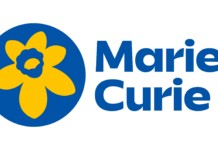COVID-19: NGOs call on World Health Organisation to help stop next pandemic
Ban on global wildlife markets could prevent such health crises in the future
London, 6 April 2020 – Ahead of World Health Day on 7th April, global animal welfare organisation FOUR PAWS, together with 240 other international organisations, sent a joint letter to the World Health Organisation (WHO) asking them to speak out on the need for a global ban on wild animal markets as they pose a serious risk to human health. Studies have proven wildlife markets are the perfect environment for pathogens like viruses or bacteria to jump from animals to humans. With a growing demand for markets that sell live and dead wild animals such as pangolins, turtles, tigers and bats for human consumption or traditional medicine, there has never been a greater need to ban such practices considering the current global pandemic, and to help prevent future pandemics.
According to scientific journal Nature, 60 per cent of emerging infectious diseases are zoonotic and 70 per cent of these are thought to originate from wild animals. The risk of zoonotic disease transmission increases due to the severely unhygienic conditions associated with wildlife markets. Animals are crammed together in tiny spaces in the frequently crowded markets. The close proximity to humans provides the perfect opportunity for pathogens to spread. The animals have weak immune systems as a result of inadequate care, stress and trauma. They are prone to disease, which further exacerbates the risk for humans. “It’s not the first time that infectious diseases have been linked to wild animals. The recent epidemics SARS-CoV 1, which jumped from bats to civet cats and then to humans, and MERS-CoV, which was transmitted to humans from camels, as well as Ebola and HIV are all zoonotic diseases. These and many other infectious diseases show that zoonoses pose a huge public health risk. As long as wildlife markets exist, they won’t be the last. It would be extremely negligent of the WHO to dismiss the opportunity to help prevent future pandemics,” says Kieran Harkin, Head of Wild Animal Campaigns at FOUR PAWS.
Traditional medicine additionally fuels wildlife trade
Although studies conducted by World Animal Protection (WAP) highlighted that over 80 per cent of traditional medicine consumers would prefer herbal or synthetic ingredients, wild animals, such as pangolins, bears, turtles, lions or tigers, are still processed for some medicines. Risk of disease transmission is prevalent across all aspects of wild animal products trade. “Lion and tiger bones, rhino horn or pangolin scales have no proven unique medical properties. We ask governments worldwide to support us and raise awareness among their citizens that the consumption and use of wildlife is a risk to public health and safety, and to ensure that markets which sell wild animals and their parts have no place in their respective countries,” says Harkin.
Help keep news FREE for our readers
Supporting your local community newspaper/online news outlet is crucial now more than ever. If you believe in independent journalism, then consider making a valuable contribution by making a one-time or monthly donation. We operate in rural areas where providing unbiased news can be challenging. Read More About Supporting The West Wales Chronicle


























